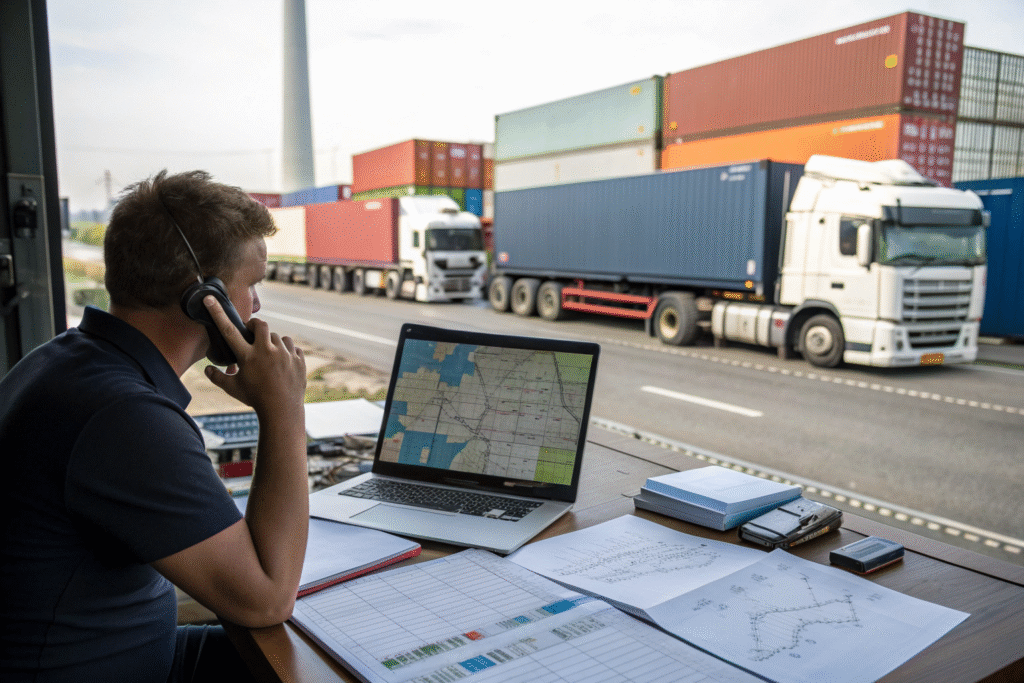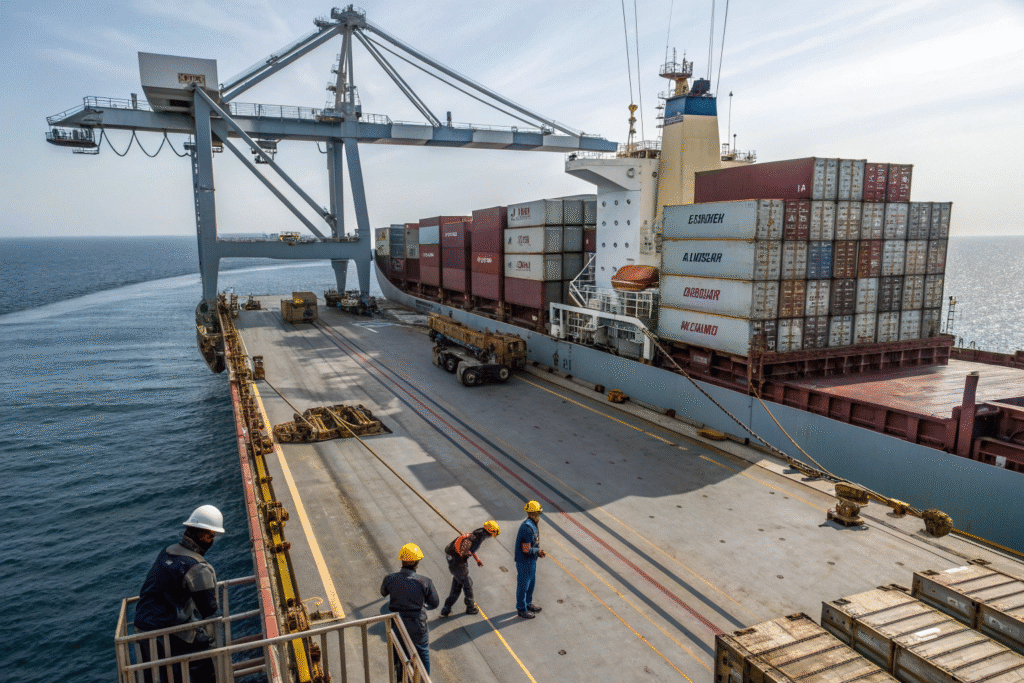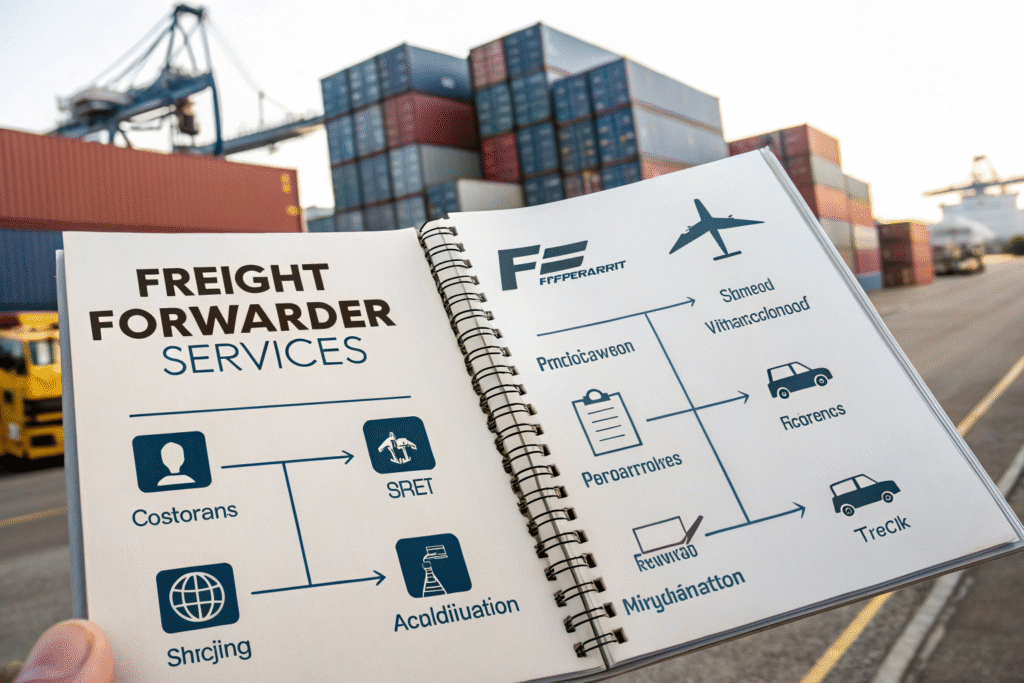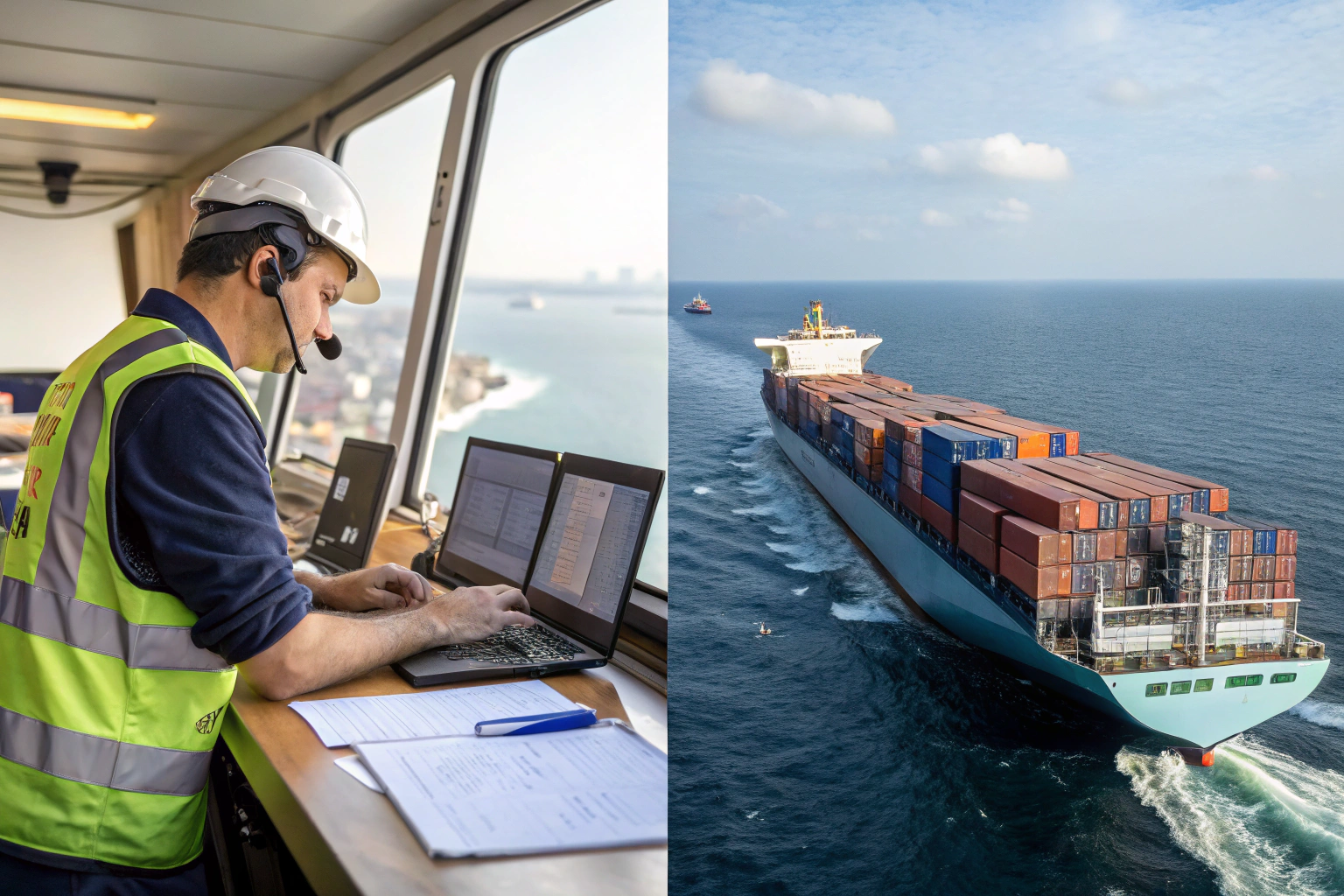When I talk to clients, many of them blur the line between freight forwarders and shipping companies. Honestly, it happens all the time. Well, both deal with cargo, but the roles are not the same. I’ve had buyers say to me, “So you must own the ship, right?”—and I usually chuckle. As a freight forwarder, I don’t own the ships. I manage the chain of steps that gets goods from factory doors to warehouses across the ocean.
To put it simply: a freight forwarder arranges and manages shipments, while a shipping company—sometimes called a carrier—actually owns and operates the vessels, planes, or trucks that move the cargo.
From my observation, once people grasp this difference, they make better choices. And honestly, it saves a lot of frustration later on.
What Does a Freight Forwarder Do?
A freight forwarder is like a travel agent for goods. We don’t own the plane, and we don’t sail the ship. But we connect the dots and make the journey possible.
Freight forwarders handle bookings, customs clearance, documents, consolidation, and logistics advice for businesses of all sizes.
In my experience, small and medium importers would feel lost without forwarders. I once worked with a clothing retailer who tried booking directly with a carrier. She called me later, frustrated, because customs rejected her paperwork. When she let me handle the process, her shipments cleared without delays. That’s the difference a forwarder makes.

How Do Freight Forwarders Simplify Trade?
We take on the messy parts. Things like preparing a Bill of Lading, ensuring compliance with China Customs, or picking a carrier with reliable schedules. Without that, shipments can get stuck. And when they get stuck, I’ve seen importers lose weeks, sometimes even clients.
Do Freight Forwarders Offer Extra Services?
Yes, and actually, this is where forwarders shine. We often arrange cargo insurance, provide warehousing, and offer tracking through systems like CargoWise. From my observation, clients value that peace of mind almost more than the shipping price.
What Does a Shipping Company Do?
Shipping companies are the ones that run the actual machines. They move containers across oceans, skies, or highways.
A shipping company owns and operates the ships, aircraft, or trucks that physically carry goods.
In my opinion, most people know the big carrier names like Maersk or COSCO. But what they don’t always realize is: these companies won’t hold your hand through customs or advise you on paperwork. They just move the cargo. And they do it very well—but that’s their lane.

What Types of Shipping Companies Exist?
There are ocean carriers, airlines, trucking firms, and rail operators. Think CMA CGM for sea, DHL Aviation for air, or Union Pacific Rail for rail. They’re essential players, but they won’t manage your logistics strategy for you.
Do Shipping Companies Work Directly With Clients?
Sometimes they do, but usually for large businesses. In my experience, smaller importers often struggle because carriers want minimum volumes or long-term contracts. That’s why forwarders exist—we give smaller players access to shipping space that would otherwise be out of reach.
Key Differences Between Freight Forwarders and Shipping Companies
At first glance, they may look similar, but in reality, their functions don’t overlap much.
Freight forwarders coordinate; shipping companies operate.
I usually explain it like this: the forwarder is your guide, the shipping company is your driver. You need both to finish the trip.

Quick Comparison
| Aspect | Freight Forwarder | Shipping Company |
|---|---|---|
| Main Role | Arranges shipments, handles paperwork, offers logistics support | Operates ships, planes, trucks, or trains |
| Assets | No ships or planes; relies on carrier networks | Owns vessels, trucks, or aircraft |
| Services | Customs clearance, consolidation, insurance, tracking | Cargo transportation only |
| Clients | Works with all business sizes | Often large-volume shippers |
Why Does This Difference Matter?
Because asking the wrong partner for the wrong service wastes time. I’ve seen clients try to ask carriers about customs clearance—they’ll always say: “Talk to a forwarder.” And if you ask a forwarder to sail a ship… well, you’ll probably just get a laugh.
Which One Should You Choose for Your Business?
Here’s the big question. And my answer is: it depends on who you are and how much you ship.
For small and medium importers, freight forwarders are almost always the smarter choice. Large corporations with massive volumes may work directly with shipping companies.
In my experience, 90% of my clients stick with forwarders. Why? Because we handle the headaches. But I’ve also seen big multinationals cut deals directly with Hapag-Lloyd or CMA CGM for cost savings.

When Should You Use a Freight Forwarder?
If you need help with customs, smaller loads, or door-to-door service, a forwarder is the way to go. They can also manage DDP shipping, which saves a lot of stress.
When Should You Use a Shipping Company?
If you’re shipping thousands of containers every year and have an in-house logistics team, carriers like Maersk or COSCO will talk directly to you. But without the scale, they won’t usually take smaller businesses seriously.
Conclusion
So, what’s the difference between a freight forwarder and a shipping company? In short: one manages the process, the other moves the cargo. You need both, but you shouldn’t confuse them.
As someone who has worked with both sides for years, I’d say this: most businesses benefit more from the flexibility of a forwarder. Only the biggest players go straight to carriers. Understanding the distinction isn’t just theory—it saves money, prevents mistakes, and keeps the supply chain running smoothly.








